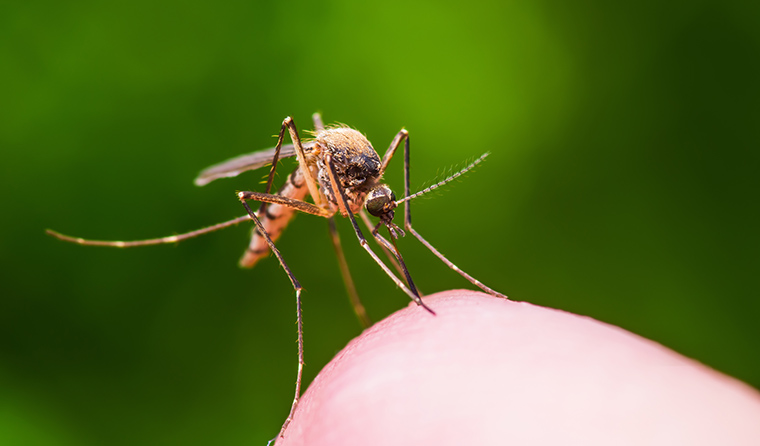News
Queensland has most to lose from climate change – especially in health
From floods to heat-related illness to dengue outbreaks, health is at risk in the country’s north-east.
 Floods, fires, drought and disease are among the main threats to health from climate change. (Image: Andrew Rankin)
Floods, fires, drought and disease are among the main threats to health from climate change. (Image: Andrew Rankin)
Of all Australian states, Queensland has the most to lose from the 40C of global warming expected within 80 years if the planet stays on its current path, according to an Ernst and Young report.
But health experts and politicians say the impact won’t just be economic – there will be major impacts on human health, ranging from cyclones to snakebite to dengue to jellyfish stings to vector-borne disease.
Northern Queensland experienced a series of record-breaking heatwaves last summer, with the November heatwave killing almost one third of all spectacled fruit bats.
That mass death triggered a large-scale public health response, with many seeking vaccinations after handling dead bats.
Cairns public health researcher Dr Lea Merone told newsGP that the bat deaths could have potentially wide-reaching public health impacts.
‘You get increased exposure to bats, which has risks of communicable diseases like Australian bat lyssavirus,’ she said. ‘If you have increased contact with bats, there will be increased requirements for vaccines and immunoglobulin.’
Cairns GP Dr Nicole Sleeman said the sheer length and intensity of the heatwave stood out.
‘The minimum-temperature records were broken, the maximum-temperature records were broken, the length of the heatwave record was broken. That stands out markedly to me,’ she told newsGP.
‘And then with the bats dying, it meant large numbers of people needed to be vaccinated.
‘I was working during that period and what I saw was infants coming in dehydrated, with their mothers wondering what was wrong.’
Dr Sleeman, who is part of the Climate and Health Alliance and works in Yarrabah, an Aboriginal community near Cairns, described climate change as ‘the greatest health issue of the 21st century’.
‘What we’re expecting in climate change is increased average rainfall, floods, more extreme weather events, increased risks of severe cyclones, more infectious disease and huge storm surges,’ she said.
‘There will be difficulty servicing Aboriginal communities due to storm surges.’
Only three months after the first heatwave came the floods, which ravaged Townsville and killed up to half a million cattle.
Why is Queensland particularly exposed?
In short, the state has a decentralised population, almost 7000 kilometres of coastline, and tropical to sub-tropical climates, meaning it is exposed to extreme weather, heat, and tropical diseases.
Queensland Health Minister Steven Miles told newsGP climate change is the ‘single most important issue of our time’.
Minister Miles cited heat-related illness, vector-borne diseases, and respiratory diseases as key climate health risks.
‘[Climate change] will, and has already begun to, affect our lives on a day-to-day basis,’ he said.
‘GPs and other health workers are already treating the patients with conditions brought on, or worsened, by climate change. And the number of these patients is expected to grow.
‘Queenslanders will be vulnerable to heat-related illness as temperatures continue to rise. As it is, heat-related illness alone accounted for more than 600 presentations in Queensland emergency departments last year.
‘When you take into account patients with pre-existing conditions exacerbated by extreme heat, the number who presented might actually be in the tens of thousands.
‘People die tragically in extreme weather events made more frequent by climate change. We know now three people died after the Townsville flood due to infection from bacteria called melioidosis found in soil after wet weather.
‘Climate change is lengthening the transmission seasons of vector-borne diseases and changes to the patterns of infection. This has been demonstrated, unfortunately, with the recent cases of dengue in Rockhampton – a mosquito-borne disease normally unheard of outside of the tropics.
‘These are a handful of the health impacts of climate change GPs will be faced with in the future.’

Until recently, Rockhampton had been free of the mosquito-borne dengue for decades.
RACGP Queensland Chair Dr Bruce Willett told newsGP that climate change is ‘looming as society’s great health and wellbeing challenge’.
‘We can be sure that climate change will have direct severe health consequences as a result of rising temperatures, and to some extent these will be predictable,’ he said.
‘Less predictable, and potentially more severe, will be the indirect consequences that result in physical dislocation, economic and social changes produced by climate change.’
The Queensland Government last year released a plan to tackle climate change-related health issues, the Human Health and Wellbeing Climate Change Adaption Plan.
The issue is complicated by the fact many of the state’s regional cities are dependent on coal mining, which exacerbates climate change, though there are recent signs of change.
Northern Territory GP Dr Rosalie Schultz co-authored the RACGP’s new position statement on climate change and health. She highlighted the fact much of northern Australia’s industry is based on agriculture and tourism, areas that expose workers to climate risks.
‘These require people to be outside, experiencing the weather,’ she told newsGP.
Dr Schultz said that climate change would also take a heavy toll on mental health, with people worried about losing the environments in which they grew up.
‘There’s an epidemic of depression and anxiety as a side effect of climate change,’ she said.
‘In this country, we’re not seeing drownings or buildings collapsing – we’re seeing mental health effects.’
climate change health Queensland
newsGP weekly poll
How often do patients ask you about weight-loss medications such as semaglutide or tirzepatide?